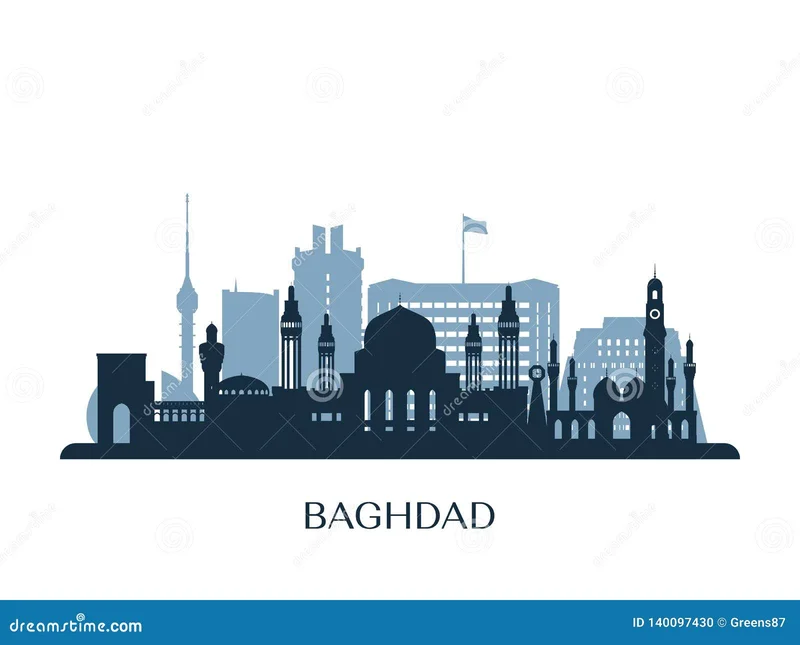[Generated Title]: Can "Iraq First" Overcome Iraq's Last-Place Turnout?
Iraq is gearing up for another parliamentary election, with over 7,700 candidates vying for a spot. Prime Minister Mohammed Shia al-Sudani is angling for a second term, campaigning under the banner of the "Reconstruction and Development Coalition" (symbolized, rather oddly, by a crane) and the slogan "Iraq First." The election coincides with the centennial of Iraq's first constitution in 1925. But can Sudani’s vision overcome a significant hurdle: Iraq's dismal voter turnout?
The Turnout Problem: Apathy or Acceptance?
The 2021 election saw a record low turnout of just 41%. That’s barely two in five eligible voters bothering to show up. Muqtada al-Sadr, a name synonymous with Iraqi politics, has called on his followers to boycott this year’s vote. Sudani’s advisor is betting on younger voters, arguing they’re less tethered to sectarian ideologies or the baggage of Saddam Hussein’s era. The Amarji Liberal Party, billing itself as Iraq's first truly liberal party, is also trying to gin up youth enthusiasm. But is it enough to move the needle?
It’s tempting to write off low turnout as simple apathy. But that’s an oversimplification. It could just as easily indicate a form of tacit acceptance of the status quo. Or, perhaps more worryingly, a deep-seated distrust in the electoral process itself. After all, Iraq hasn’t had a comprehensive census since 1987 (the 1997 census excluded the Kurdistan region). How accurate are these voter rolls, anyway? And if they're not accurate, how much does that skew any analysis of turnout rates? These are questions that need answering.
"First" vs. First: A Matter of Priorities
Sudani’s "Iraq First" echoes Donald Trump's "America First." Sudani himself acknowledges the similarity. But what does it mean in practice? "Vision 2050," his plan to transform Iraq, is clearly inspired by Saudi Arabia’s "Vision 2030." The "Development Road" project aims to connect the Grand Faw Port to Europe via Turkey. These are ambitious, long-term projects. But are they what Iraqi voters actually want? The Man Who Wants to Make Iraq Great Again - Newsweek explores Sudani's vision in more detail.

Campaign posters featuring Qassem Soleimani and Abu Mahdi al-Muhandis are plastered all over Baghdad. Their assassination in 2020 remains a potent symbol. Meanwhile, the Islamic Resistance in Iraq continues to launch attacks against U.S. troops and Israeli targets. These are actions with real-world consequences, both economically and politically.
The question is this: Is "Iraq First" about economic development and regional integration, or is it about asserting a particular brand of anti-Western, anti-Israeli nationalism? (The answer, of course, is probably "both," but the emphasis matters.) And how does that emphasis play with the younger voters Sudani is counting on? I've looked at hundreds of these political strategies, and this particular balancing act is unusual.
The ISIS Factor: A Diminishing Threat?
Major General Tahseen al-Khafaji claims that ISIS militants in Iraq have dwindled to a few hundred. Mosul, once the terror group's headquarters, now attracts tourists from Europe and Russia. This is progress, no doubt. But it also raises a critical question: does the perceived decline of ISIS lead to complacency? Or does it free up voters to focus on other, more pressing issues like corruption, unemployment, and basic services?
Iraq held its first election 20 years after the U.S.-led invasion that toppled Saddam Hussein. Baghdad, once the center of the Islamic Golden Age, has spent the 21st century battling insecurity. Sudani came to power in 2022 after political infighting brought down his predecessor. He's trying to steer Iraq away from conflict following the defeat of ISIS. A tough job, to say the least.
Counting on Hope, Not History
Iraq's future hinges on more than just slogans and infrastructure projects. It depends on whether Iraqis believe their votes matter. A 41% turnout isn't just a number; it's a statement. Can Sudani convince enough voters that "Iraq First" means their interests come first? Or will this election be another exercise in futility, solidifying the apathy that has plagued Iraqi politics for far too long?
A Reality Check
Sudani's got a steep hill to climb. Slogans are cheap, but trust is earned. Until Iraqis see real, tangible improvements in their daily lives—and believe their voices are actually heard—expect more of the same.
